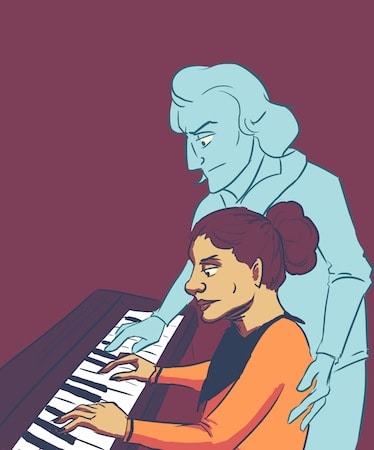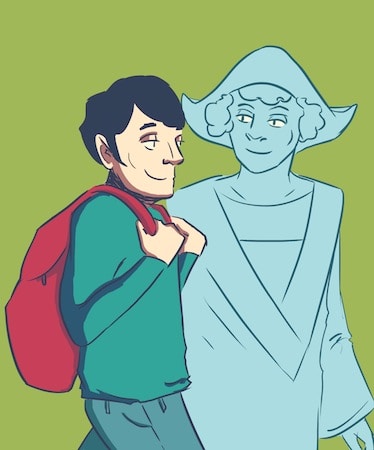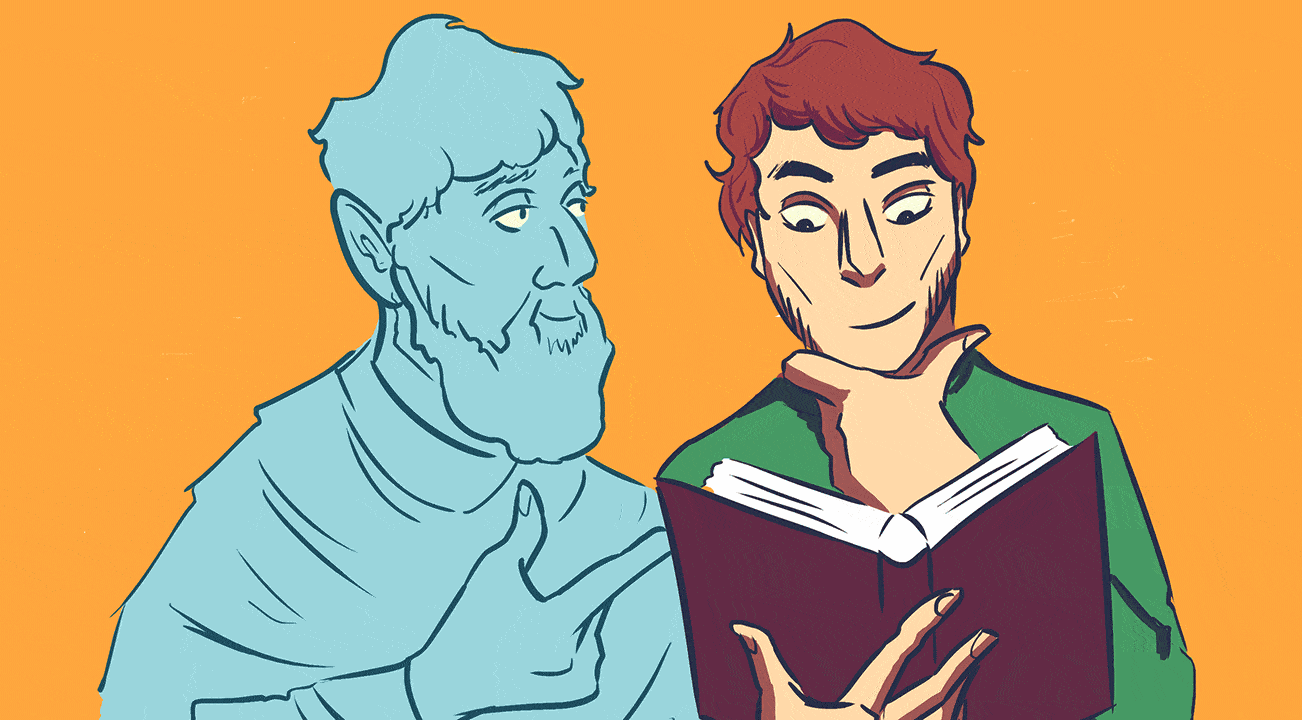At the University of Toronto and other institutions, students in the humanities are mocked for the impracticality of their fields of study. They face questions about how they intend to translate their degrees into a living, with the implication that a specialist degree in philosophy or a major in classics is an unlikely path to a flourishing career.
There is some evidence that humanities departments are on the decline, with enrolment numbers down, criticism in public discourse, and some universities considering slashing programs altogether. However, criticism of the humanities often fails to recognize the diverse skills that humanities students acquire from their degrees including reading, writing, and creative analysis — that are not oriented towards any single job; as well as the importance of learning for the sake of curiosity.
Departments on the decline
The practicality of the humanities was not always in question. Beginning in ancient Greece and Rome, the humanities were long considered to be at the heart of academic institutions. Their prominence continued into the Middle Ages, when universities first developed. In the fifteenth century, fields of study began to be judged based on their practicality — rather than merely studied for the purpose of being studied, which the humanities ostensibly are.
Today, the effect of this change in attitudes can be seen more than ever in schools across the world. Some studies indicate that fewer students are enrolling in humanities programs globally. Students and their families often evaluate programs based on the payoff of the job they can pursue after school in relation to the total cost of tuition and effort of achieving the degree. The perceived lack of practicality makes it difficult for students to justify spending money or incurring debt to pay high tuition fees.
[pullquote]The sciences are the “how,” and the humanities are the “why” — why are we here, why do we believe in the things we believe in. I don’t think you can have the “how” without the “why.””
— George Lucas[/pullquote]
At Yale University, for example, 165 students graduated with a bachelor of arts in English Literature in 1991. This number plummeted over the next 20 years, with only 62 Yale English literature graduates in 2012.
Elsewhere, universities have had to cut some programs due to low enrolment numbers. In England, Middlesex University was forced to shut down its philosophy, history, and performing arts departments in 2010. At the same time, British universities Keele University and the University of Greenwich were both considering cutting their philosophy programs as well. After students objected to the change, both universities decided to continue the programs for the time-being.
“The study of human relations”
 The bad press for the humanities comes from a broader problem than their impractical nature; it is the result of the way people generally perceive universities today: as a means to an end. A university degree is meant to teach graduates skills that they will use later on in their careers.
The bad press for the humanities comes from a broader problem than their impractical nature; it is the result of the way people generally perceive universities today: as a means to an end. A university degree is meant to teach graduates skills that they will use later on in their careers.
Many jobs require students to hold a bachelor’s degree, and therefore universities have the instrumental value of qualifying their graduates for jobs that they otherwise would not have access to. Humanities programs are not perceived as providing students with such marketable skills. The humanities are often viewed as an academic indulgence and a waste of money. However, students in the humanities gain a diverse set of skills in their studies that differentiate them from those in other departments and qualify them for a variety of careers.
According to Christopher Warley, associate professor of English at U of T, the humanities involve studying human relations.
“If you think of the humanities as instrumental, you will be sadly disappointed because it’s not,” says Warley. “The study of human relations … can never be instrumental because an instrumental understanding of something means that there is a definite answer, and there is no right answer when talking about the relations amongst people. There can’t be a right answer because they happen in time and there’s no way to ground them at all, ever.”
[pullquote]Aeschylus and Plato are remembered today long after the triumphs of Imperial Athens are gone. Dante outlived the ambitions of thirteenth century Florence. Goethe stands serenely above the politics of Germany, and I am certain that after the dust of centuries has passed over cities, we too will be remembered not for victories or defeats in battle or in politics, but for our contribution to the human spirit.”
— John F. Kennedy[/pullquote]
The humanities offer some clear-cut practical applications, such as reading and writing skills that many students in science programs do not acquire through their degrees; however, students in the arts also develop unique skills in creative thinking and critical analysis.
Nick Mount, ENG140 professor and associate chair of the Department of English, notes: “There are employers out there who do say, and routinely do say, that they prefer to hire somebody with an English background because they’re trained to be curious … [with] an English student, you put Lolita in front of them and say, ‘Tell me something smart about this,’ and that’s the kind of employee that particular kinds of companies are looking for.”
For the sake of curiosity
Rotman Commerce students can often find careers in business within months of graduation; architecture students are hired by top employers in their field; and life science students have a wide range of graduate school options, all of which can lead them to particular careers.
The humanities hold a different place in universities, allowing students to learn for the sake of learning and satisfy their wide-ranging academic curiosity while earning their degree.
“I think students by-and-large still realize that the employer doesn’t give a shit about what you did in university, so you might as well do something that you enjoy,” Mount suggests. “All the employer cares about is, do you have a degree, and they care about the person who’s sitting in front of them. Is that person interesting me right now; is this somebody I’d like to hire?”
While the idea of learning for the sake of learning is possible in every field, humanities students are able to do so differently than their peers in the sciences; can look at their studies as a mere satisfaction of their curiosity and nothing more. A student’s analysis of Bartleby’s repeated phrase — “I prefer not to” — can place it in its historical context and lead to conclusions about various social issues at the time of its publication, the character himself, and the author. However, these trains of thought will not earn them any one job at the end of the day, as — for example— an engineer’s understanding of physics forms the basis of the career they are likely to pursue.
[pullquote]Logic will get you from A to B. Imagination will take you everywhere.”
– Albert Einstein[/pullquote]
Mount protests learning that leads students to specific, pre-mandated outcomes, which stifles students’ curiosity and creative thinking, rather than allows them to organically arrive at their own, individual conclusions. This occurs in the Canadian public school system as a result of overly directed curricula: “Learning outcomes: [public school] teachers are being told that you need to produce this kind of outcome. They teach to that. If you tell a teacher ‘this is the learning outcome your student must have,’ then teachers are going to think, ‘how am I going to give a student that learning outcome?’ So they don’t teach to curiosity anymore. They teach to the learning outcome. And, yes, that will reduce the kinds of curiosity-driven experiences, whether in the sciences or the humanities.”
If the intention of universities was to have students learn a skill or a technique — or to attain a job with the completion of the degree — they would be the same type of institutions as polytechnics and colleges. As such, there would be no place for the humanities, many social sciences, and many other programs taken by themselves without an added graduate degree. Without the university, these disciplines would not have a place for the academic study that they merit.
Arts students have the opportunity to satisfy their academic curiosity while improving their writing and analytical skills, and can pursue graduate school or a number of college programs afterward if they do not immediately begin careers — many of which are specialized and open only to those who hold a BA.
The humanities at U of T
 U of T boasts some of the largest humanities departments globally, with top-rated professors and 85 diverse programs. Based on the qs university rankings, U of T has the fifteenth-best English and History departments in the world. The philosophy department is becoming more and more prominent in the philosophy world, holding the eleventh spot in the QS ranking, and stepping up in the Philosophy Gourmet rankings annually. Smaller U of T humanities departments also host high-quality professors and provide funding for research.
U of T boasts some of the largest humanities departments globally, with top-rated professors and 85 diverse programs. Based on the qs university rankings, U of T has the fifteenth-best English and History departments in the world. The philosophy department is becoming more and more prominent in the philosophy world, holding the eleventh spot in the QS ranking, and stepping up in the Philosophy Gourmet rankings annually. Smaller U of T humanities departments also host high-quality professors and provide funding for research.
For students studying humanities, U of T offers a wider range of courses than its competitors, along with opportunities for students to specialize in specific topics. The Independent Study program is offered in most departments, and provides top students with an opportunity to focus their studies on a particular topic under the supervision of a faculty member. Research and work-study opportunities are available to students as well, where they can help professors with their research in the arts and get credit for their work.
[pullquote]Literature can tell us what the world is like. Literature can give standards and pass on deep knowledge, incarnated in language, in narrative.Literature can train, and exercise, our ability to weep for those who are not us or ours.Who would we be if we could not sympathize with those who are not us or ours? Who would we be if we could not forget ourselves, at least some of the time? Who would we be if we could not learn? Forgive? Become something other than we are?”
– Susan Sontag[/pullquote]
U of T and other institutions in Canada are responding to increasingly negative attitudes towards the humanities in different ways. Professors incorporate diverse, ongoing research in the humanities with classic ideas and theories to illustrate to students how the texts and notions they are studying are still actively engaged. At U of T, the course “The Digital Text” is offered to English students, allowing them to engage with computer technology and math while studying literature. Many schools are accepting arts students in medical training programs, with McMaster teaching an undergraduate course in the developing international field of medical humanities.
Courses like these point to the importance of humanities departments developing interdisciplinary programs that allow students to more clearly visualize their career options while continuing to study the arts. U of T departments often allow students to take relevant courses in other departments as part of their program requirements. At the University of Ottawa, the World Literatures and Cultures master’s program is the first such degree in Canada, and allows arts students to explore modern global cultures from a variety of perspectives — including those in film, literature, language, and cultural history. Degree programs in the humanities can combat their image problem by seeking similarly innovative approaches to the study of the humanities that incorporate interdisciplinary elements and offer students a modern, flexible framework for their studies.
Despite declining enrolment in the humanities and perceptions of their impracticality in post-secondary studies, their continued relevance in human existence allows them to persist. Warley observes: “Every time you see people going to a movie, you know the humanities are popular — because they’re going to the humanities to think about life.”
The humanities is a living field, in spite of perceptions to the contrary, with debates and innovation ongoing and texts and ideas becoming more universally accessible everyday. The practical value in studying the humanities is largely abstract, but Mount argues that fulfilling students’ curiosity in these subjects is invaluable: “I don’t believe the humanities have a value in the way that term is usually used. In other words, it’s the one thing you do in your life that we can’t actually put a number on. We can’t say this is going to get you a job or this is going to earn you that much more money… you [study the humanities] because you’re human.”


